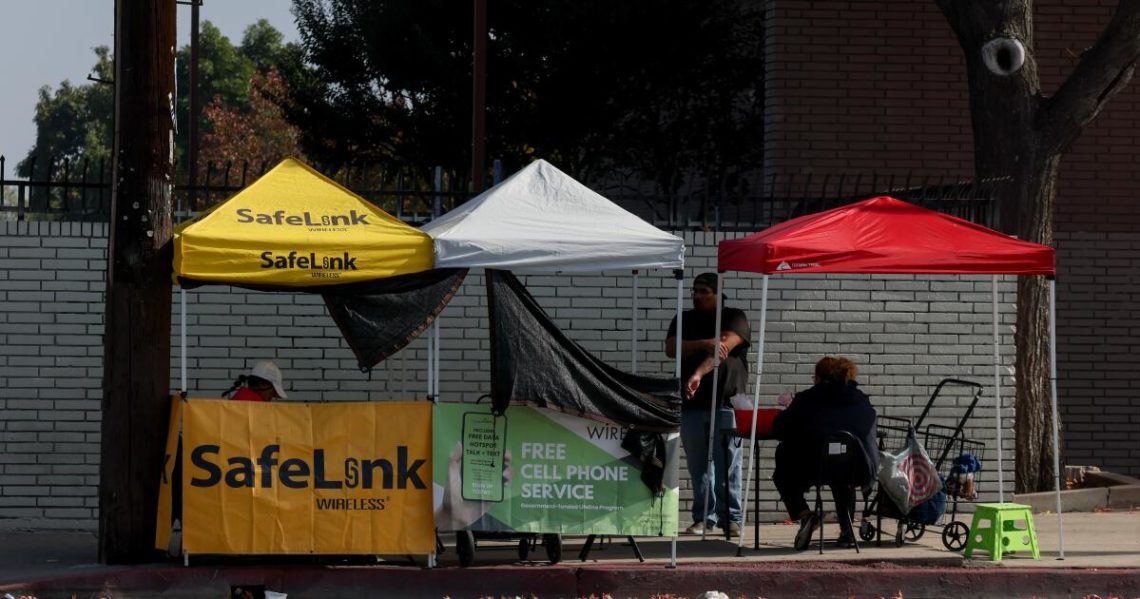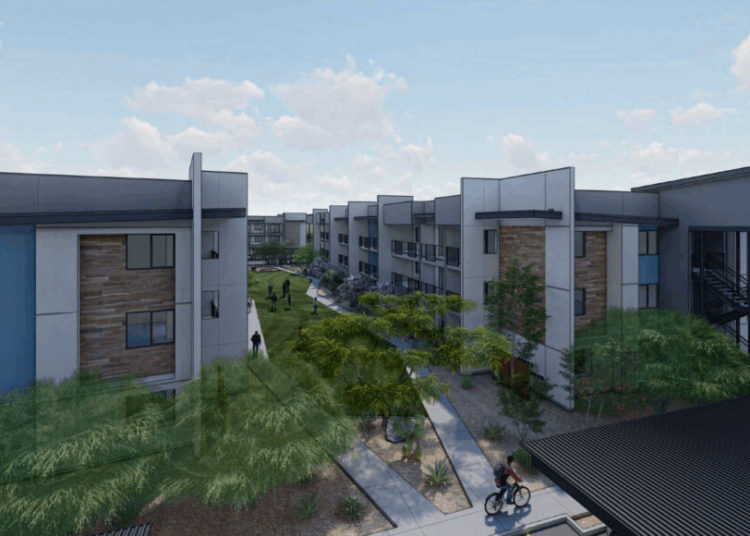L.A. County supervisors want to bar “predatory” salespeople who they say prey on vulnerable residents seeking benefits from the region’s social services offices.
The supervisors unanimously voted Tuesday to explore creating a “buffer zone” outside county offices, prohibiting certain types of “aggressive” solicitation toward people seeking food stamps and cash aid. County lawyers have two months to figure out what such a zone would look like.
The looming crackdown follows a Times investigation that found seven people who said recruiters outside a social services office in South Los Angeles paid them to sue the county over sex abuse. Two more later told The Times they, too, were solicited for sex abuse lawsuits outside a county social services office in Long Beach, though they initially believed they were being recruited to be extras in a movie.
“We are painfully aware of the ongoing allegations of fraud and the pay-to-sue tactics used to recruit clients and file lawsuits against the county,” said Supervisor Janice Hahn, who announced she would push for the buffer zone after the Times investigation. “There must be greater accountability both to protect survivors seeking justice and to ensure that fraudulent claims and predatory solicitation are stopped at their source.”
The county’s more than 40 social services offices act as one-stop shops for residents who need help applying for food, housing and cash assistance. Outside many of the larger offices in poorer areas, a bustling ecosystem thrives with vendors hawking goods and services to those in line.
The supervisors said Tuesday they were troubled by some of the offerings.
“Vendors asking for copies of people’s personal documents, trying to sell them products and even recruiting people into claims against the county — this behavior puts residents at real risk and undermines the trust in our public services,” said Supervisor Lindsey Horvath.
Supervisor Kathryn Barger said she wanted to see reforms that would protect both taxpayers and “vulnerable individuals who are being used as pawns to line the pockets of many of these attorneys.”
The motion passed 3 to 0. Supervisors Hilda Solis and Holly Mitchell, whose district includes the social services office where some of the lawsuit recruitment took place, were absent.
The Times spent two weeks outside the South L.A. office this fall and watched vendors seek out dozens of people with Medi-Cal, the state’s health insurance for low-income Californians. The vendors would pay them anywhere between $3 and $12 to undergo COVID and blood pressure tests, which they said would be billed to their state insurance. Some people said they routinely stopped by the location for quick cash.
Giveaways of free phones are also popular for those who are eligible through a government-subsidized program. Recipients have complained that the service on the phones was often short-lived, with some people returning to the kiosks within a few days after their number stopped working.
Leaders at the Department of Public Social Services, who oversee the offices, say they’re limited in what they can do outside their facilities. Many of the busiest locations are in Los Angeles or smaller cities, where the county has no authority. And regulating where vendors can go on public sidewalks has proved a reliable headache for local governments in the past.
Last year, the Los Angeles City Council eliminated the “no-vending zones” it had created in areas where it said street vendors would contribute to congestion. The ban was met with an outcry and a lawsuit from vendors who argued street vending had been decriminalized and the city could no longer outlaw the stands.
Eugene Volokh, a 1st Amendment professor and senior fellow at Stanford University’s Hoover Institution, said the county will have to be careful in defining what conduct is “predatory” and what is protected speech.
“The devil’s going to be in the details,” Volokh said. “Whenever you hear words like ‘predatory’ or ‘exploitative’ or ‘harassing’ or ‘bullying,’ you know you’re dealing with terms that are potentially very vague and often, by themselves, too vague to be legally usable terms.”
The post L.A. County moves to ban ‘predatory solicitation’ amid questions about sex abuse lawsuits appeared first on Los Angeles Times.




